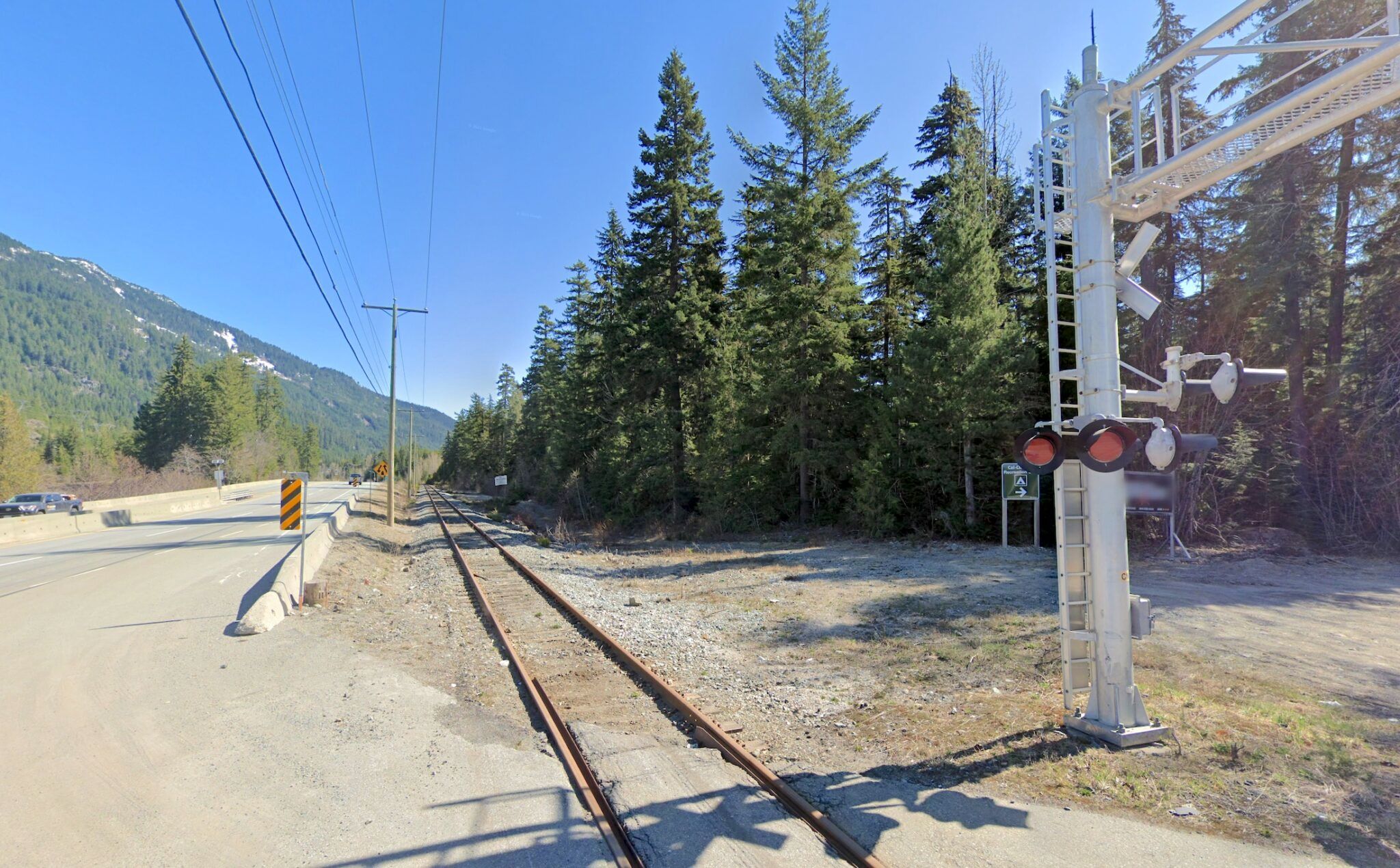Lifestyle
CN Rail Ends Lease on Whistler Corridor, Sparks Transit Revival Talks

Canadian National (CN) Rail has announced plans to terminate its lease on the railway segment from Squamish to 100 Mile House, which passes through Whistler. This decision presents an opportunity for the Government of British Columbia to explore the revival of regular passenger rail services in the region. With CN Rail stepping back, the operational control of this key railway segment will revert to the provincial government through its wholly owned entity, BC Rail.
The original agreement, established in 2003, involved a controversial sale of BC Rail’s assets to CN Rail for $550 million and a subsequent long-term lease valued at $1 billion. This lease included an initial term of 60 years with an optional 30-year extension, allowing the province to potentially reacquire the railway assets at the end of the term. Previously, BC Rail was a profitable entity, ranking as the third-largest railway in Canada, behind Canadian Pacific Kansas City (CPKC) and CN Rail.
In its recent operational plan, CN Rail indicated a “discontinuance” of certain segments of its BC Rail operations. This includes the lease on the railway corridor running between Squamish and 100 Mile House, as well as the Lillooet branch. CN Rail intends to maintain its lease for the line between Lonsdale in North Vancouver and Squamish.
The timeline for interested parties to take over the railway segment is set for July 2026. Jeremy Valeriote, the Member of the Legislative Assembly (MLA) for West Vancouver–Sea to Sky, emphasized that this provides a crucial one-year window for governments to develop a viable business case for a new operating entity to acquire the remaining 40 years of the lease. If no operators emerge, the segment could be offered to various levels of government for its net salvage value under the Canada Transportation Act.
“This potential transfer of this rail corridor marks a pivotal moment for the Sea to Sky region,” stated Patrick Weiler, the Member of Parliament (MP) for West Vancouver-Sunshine Coast-Sea to Sky Country. Valeriote and Weiler highlighted that since the early 2000s, the residential population in the Sea to Sky Corridor has surged by over 60 percent, along with a significant increase in tourism and recreational traffic.
The region’s growth has largely been driven by enhancements made to the Sea to Sky Highway, particularly ahead of the 2010 Winter Olympics. However, rising demand has since strained the highway’s capacity. Squamish is increasingly viewed as a commuter suburb for Metro Vancouver, while Whistler faces challenges in providing housing for tourism and hospitality workers.
Valeriote stressed the importance of introducing a new rail transit service as a means to alleviate traffic congestion on the highway. “This summer, the Sea to Sky Highway is clearly showing itself to be at capacity,” he noted. He urged that senior levels of government should seize this opportunity to invest in infrastructure that creates jobs and strengthens the economy.
A 2017 study by BC Transit indicated sufficient demand for a bus system linking downtown Vancouver to Whistler, with major stops at Horseshoe Bay and Squamish. Despite this, the provincial government has yet to provide the necessary funding to implement the strategy. During the Fall 2024 provincial election campaign, Premier David Eby’s BC NDP party pledged to consider new public transit options for the Sea to Sky Corridor, including a commuter rail line connecting Metro Vancouver, Squamish, Whistler, and Pemberton.
Calls for improved regional public transit have intensified following Greyhound’s withdrawal from the Sea to Sky Highway in 2018, which left a gap in services between Vancouver, Squamish, and Whistler. Although some private bus operators still run services along the corridor, they have not been able to meet the demand previously fulfilled by Greyhound.
Mountain Valley Express has advocated for a comprehensive regional rail network, emphasizing that restoring passenger rail service could significantly reduce traffic congestion, lower emissions, and enhance community connectivity. “Passenger rail would enhance both economic resilience and quality of life,” said Weiler.
Historically, passenger rail services operated along this corridor, connecting North Vancouver to destinations as far north as Prince George. VIA Rail provided tourism services in the 1980s before selling to what would become Rocky Mountaineer in 1990. BC Rail also offered various passenger services, but financial challenges led to their discontinuation prior to privatization.
If a solution for the railway segment is not found by July 2026, it may threaten the continuation of Rocky Mountaineer’s key sightseeing route between North Vancouver and Jasper, which includes overnight stops in Whistler and Quesnel. While Rocky Mountaineer maintains other routes in Western Canada, the loss of this segment would have significant implications for tourism in the region.
The potential suspension of a high-rail bus service for First Nations communities around Lillooet has also raised concerns. Weiler remarked on the complexities involved in prioritizing passenger rail, which would necessitate coordination among various stakeholders, including governments and freight operators.
As discussions continue, significant investments will be required to upgrade the railway corridor, as current travel times are not competitive with driving. Meanwhile, the provincial government and other entities are examining the long-term potential of the 225-kilometer railway corridor on Vancouver Island, previously operated by CPKC, for passenger services.
In 2023, the provincial government allocated $18 million for planning efforts related to this corridor. The unfolding developments surrounding the railway segment between Squamish and 100 Mile House could reshape transit options in the Sea to Sky region, providing a much-needed solution to the transportation challenges faced by its growing population.
-

 Politics4 weeks ago
Politics4 weeks agoSecwepemc First Nation Seeks Aboriginal Title Over Kamloops Area
-

 World5 months ago
World5 months agoScientists Unearth Ancient Antarctic Ice to Unlock Climate Secrets
-

 Entertainment5 months ago
Entertainment5 months agoTrump and McCormick to Announce $70 Billion Energy Investments
-

 Science5 months ago
Science5 months agoFour Astronauts Return to Earth After International Space Station Mission
-

 Lifestyle5 months ago
Lifestyle5 months agoTransLink Launches Food Truck Program to Boost Revenue in Vancouver
-

 Technology3 months ago
Technology3 months agoApple Notes Enhances Functionality with Markdown Support in macOS 26
-

 Lifestyle3 months ago
Lifestyle3 months agoManitoba’s Burger Champion Shines Again Amid Dining Innovations
-

 Top Stories2 months ago
Top Stories2 months agoUrgent Update: Fatal Crash on Highway 99 Claims Life of Pitt Meadows Man
-

 Politics4 months ago
Politics4 months agoUkrainian Tennis Star Elina Svitolina Faces Death Threats Online
-

 Sports5 months ago
Sports5 months agoSearch Underway for Missing Hunter Amid Hokkaido Bear Emergency
-

 Politics5 months ago
Politics5 months agoCarney Engages First Nations Leaders at Development Law Summit
-

 Technology5 months ago
Technology5 months agoFrosthaven Launches Early Access on July 31, 2025



















